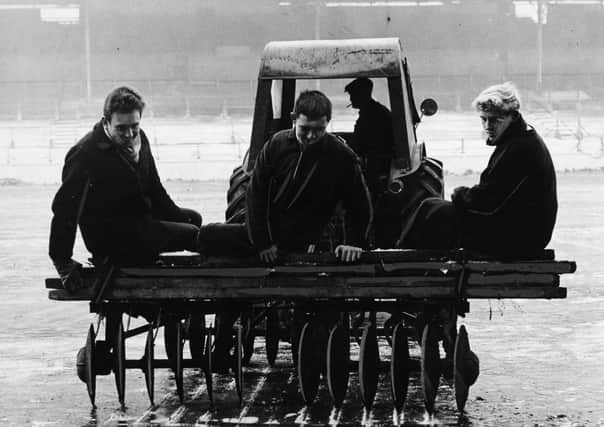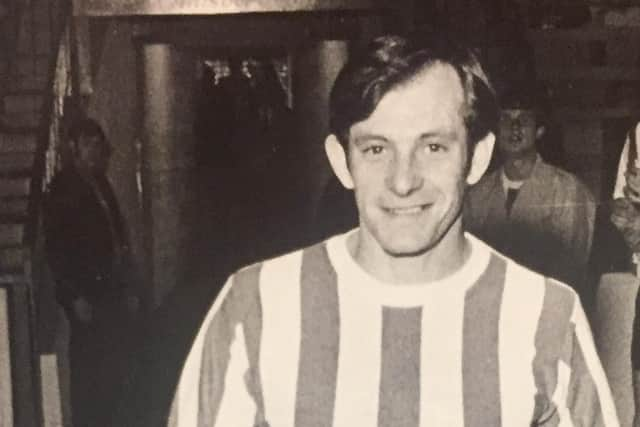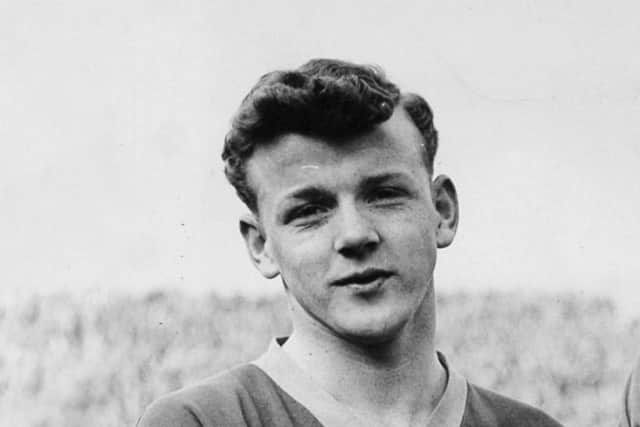Bygones – When ‘ice age’ forced football into first prolonged lockdown


Today’s unprecedented situation presents huge challenges for football’s governing bodies, as was the case just over 57 years ago.
Snow swept across the country on Boxing Day 1962 and the conditions did not relent until well into March amid average temperatures of around minus six degrees centigrade, with the situation exacerbated by Arctic winds which led to huge snow drifts up to 20 feet deep in some places.
Advertisement
Hide AdAdvertisement
Hide AdIt decimated football, with the third round of the FA Cup taking a colossal 66 days to complete, following a staggering 261 postponements – with the 1962-63 season extended by a month to cope with the backlog of games.


The Cup final between Manchester United and Leicester City was eventually played on May 25, with the two-legged final of the League Cup between Birmingham City and Aston Villa being staged either side of it.
Across Yorkshire and the north of England, it was a particularly grim and difficult time, albeit with one moment of inspiration.
No-one was hit harder than Barnsley, who played just two matches in an 80-day spell between December 22, 1962 and March 12, 1963.
Advertisement
Hide AdAdvertisement
Hide AdTraining proved a huge logistical issue for clubs, with Coventry City – under the management of Jimmy Hill – flying to Ireland, which had avoided the worst of the weather, to play friendly matches, including a game against Manchester United in Dublin which attracted a crowd of 20,000.


Norwich City used military flame-throwers on their playing surface at Carrow Road in an attempt to defrost it and also flooded it, but to no avail.
Meanwhile, Halifax Town came up with the rather ingenious idea of turning their pitch at The Shay into a public ice rink and charging people to use it in a bid to raise funds in cash-strapped times.
Another brainwave led to the football pools companies, worried by the spectre of mounting losses amid a multitude of postponements, establish the pools panel, with the first set of members including former players George Young, Ted Drake and Tommy Lawton and ex-referee Arthur Ellis, who would go on to find national fame on the television show It’s A Knockout.
It first sat on January 26, 1963.
Advertisement
Hide AdAdvertisement
Hide AdCoping with a financial storm, alongside the snow deluge and ice, was also at the forefront of the minds of club officials across Yorkshire.
Leeds United were one such club with the Elland Road outfit seeing no games played for a 70-day spell after December 22 until March 2.
Their FA Cup third-round home tie with Stoke City was eventually played on March 6 with goals from acting captain Grenville Hair, Paul Reaney and Jack Charlton giving Don Revie’s side a 3-1 victory in front of a healthy crowd of 36,873.
Against a Potters outfit who went on to be crowned as Division Two champions, it was a milestone win for Leeds and incredibly their first victory in the Cup for over a decade since a 2-1 triumph over Bradford City in February, 1952.
Advertisement
Hide AdAdvertisement
Hide AdHair was the only Whites player to have previously experienced a win in the Cup in the colours of the club and his emotions afterwards were understandably jubilant ones.
Following the overdue success, Hair said: “That was my gladdest moment in football. It’s only the second goal I’ve scored, and I don’t suppose I’ll score another one now, but I’ve had my moment.
“It was all compensation for those last 10 Cup years. There’s been many a joke about them in the town, but it wasn’t fun to be a player in there, I can tell you.”
The Cup revenue was a boon for Leeds, a time when board members Harry Reynolds, Manny Cussins and Albert Morris had to dip into the pockets to find loans to enable the club to continue to operate – with increased personal guarantees by the board required to secure an increased bank overdraft.
Advertisement
Hide AdAdvertisement
Hide AdIt was a time when Leeds had fallen to 13th place in the old Second Division, with several of their rivals returning to action before Revie’s side, who maintained their fitness levels under the command of legendary Whites coach Les Cocker, a renowned stickler for pristine fitness.
The mood was also not helped by a shock transfer request being tabled by young midfielder Billy Bremner, who was unsettled in Yorkshire and keen on returning home to his native Scotland to boost his chances of earning a place in the Under-23 national team.
The news brought a missive from a concerned Revie to his board, with the Leeds manager starkly commenting: “If he goes, I go, because I want to build a team around him.”
Thankfully, Bremner would eventually reconsider and remain at Leeds, whose form also improved significantly on their return to action following the big freeze with a fifth-placed finish setting the foundations for a memorable promotion campaign in the following 1963-64 season when they went up as champions.
Advertisement
Hide AdAdvertisement
Hide AdThe previous campaign saw the top-flight standard for Yorkshire being flown by Sheffield Wednesday and Sheffield United.
Wednesday finished sixth, with the Blades ending in 10th position in 1962-63.
After a 3-0 victory at West Bromwich Albion on January 12, 1963, the Owls – then managed by Vic Buckingham – did not return to action until 49 days later on March 2 when goals from John Fantham (2) and Colin Dobson gave them another 3-0 away-day win in the Midlands at Nottingham Forest.
It was a time when there was no first-team football at Hillsborough for two-and-a-half months from December 22, 1962 to March 9, 1963 – a grand total of 77 days.
Advertisement
Hide AdAdvertisement
Hide AdFittingly, Wednesday delivered a grand re-entrance in front of their home supporters, with a hat-trick from David Layne and a further goal from Dobson giving them a handsome 4-1 success over Manchester City in front of a crowd of 19,424.
Meanwhile, it was not until May 15 that Wednesday hosted their Steel City derby with the Blades, with 41,585 spectators watching as goals from Layne (2) and Tom McAnearney gave the hosts a 3-1 victory.